
How to Clean Shoes by Hand or in the Washer and Dryer
Few clothing items go through as much wear and tear as shoes tend to. However, figuring out how to clean shoes is not as easy as getting them dirty. This guide will walk you through how to clean your shoes–including in the washer, and how to dry them properly.
How to Tell if Your Shoes are Machine Washable
Not all shoes can, or should be, cleaned in the washing machine, since some shoe materials can’t get soaking wet nor can they withstand high dryer temperatures, so you’ll first want to double-check what the shoes are made of. Most shoes have either a sticker or small tag sewn on the inside of the shoe with icons that symbolize the material of the shoe.
The tag will tell the different parts of the shoe:
- Outer sole
- Insole
- Upper
- Lining


As well as the different materials each part of the shoe is made of:
- Leather
- Textile
- Other materials



DO NOT CLEAN THESE TYPES OF SHOES IN THE WASHING MACHINE

These Types of Shoes Can Often Be Washed in the Washer
If, however, you’ll be cleaning machine washable shoes with any of the following materials, feel free to use the washer, just make sure to take the appropriate steps first.
- Fabric sneakers (or trainers)
- Mesh shoes
- Canvas flats (learn about washing canvas)
- Tennis shoes
- PVC/rubber shoes (as long as they don’t have any other materials that could be damaged in the wash)
How to Clean FABRIC Shoes by Hand
If you’re not sure what materials your shoes are made of, or if you’d rather not risk cleaning your shoes in the washer, then spot cleaning your shoes by hand is the safest way to get them looking like new. You’ll just need to gather some materials and follow the steps below.
Materials needed:
- Dish soap
- Warm water
- Paper towels or clean washcloth
- Toothbrush
- Rags or newspaper
- Small bowl
Steps to cleaning fabric shoes by hand:
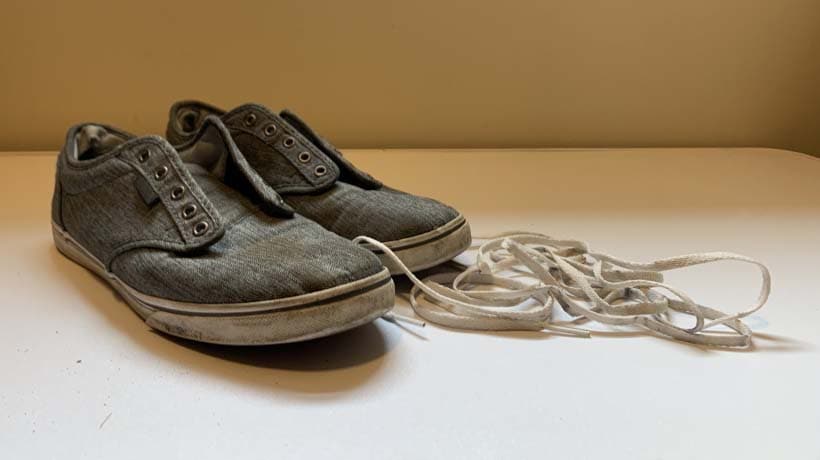
Step 1
Remove insoles (if your shoes have removable insoles) and laces. Wash laces (as long as they’re not made of leather) in the washer by first putting them in a mesh bag or a pillow case.
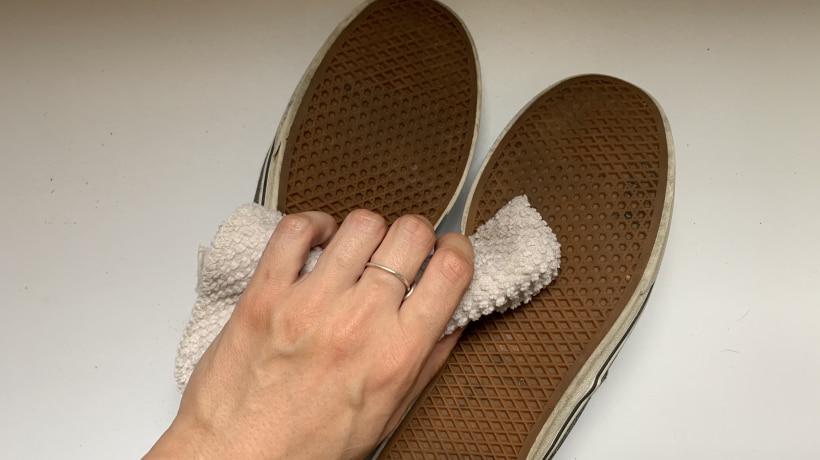
Step 2
Rinse off the sole of the shoe to remove any debris with a wet towel or under running water, making sure to only wet the sole.
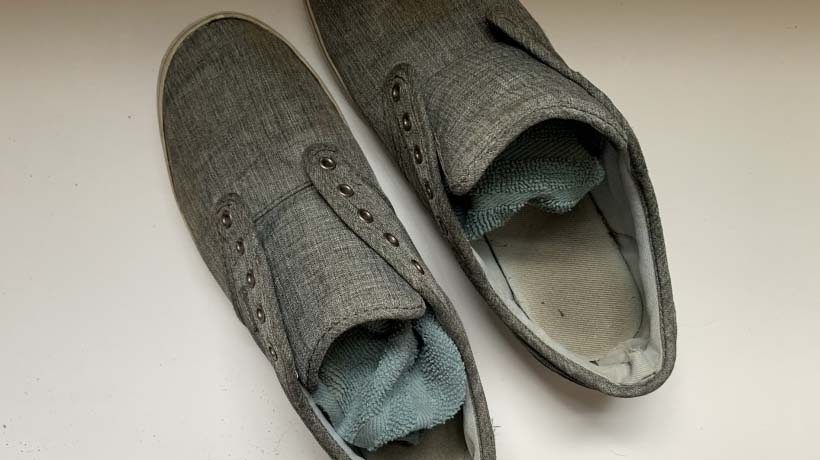
Step 3
Stuff your shoes with rags or newspaper so they keep their shape and to prevent any liquid from seeping into the shoe.
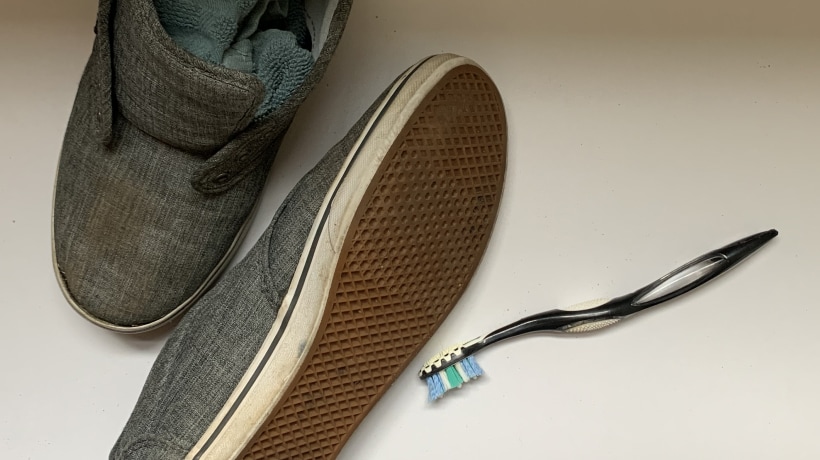
Step 4
Using a toothbrush, gently brush off any excess or loose dirt that may be on the shoe without pushing the soil in deeper.
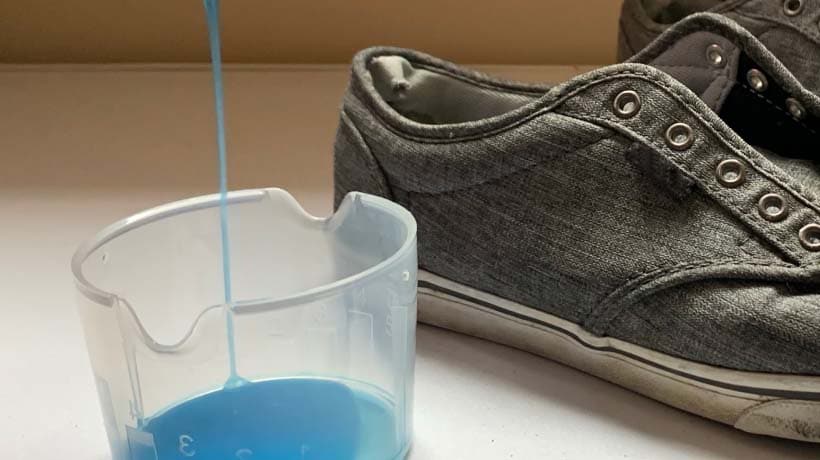
Step 5
Use the small bowl to mix 1/4 teaspoon of dish soap with two cups of warm water. If cleaning suede shoes, do not use water, instead, pour a small amount of vinegar or rubbing alcohol into a clean washcloth and rub the stain in one direction. Additionally, suede cleaning kits can also be a good alternative.
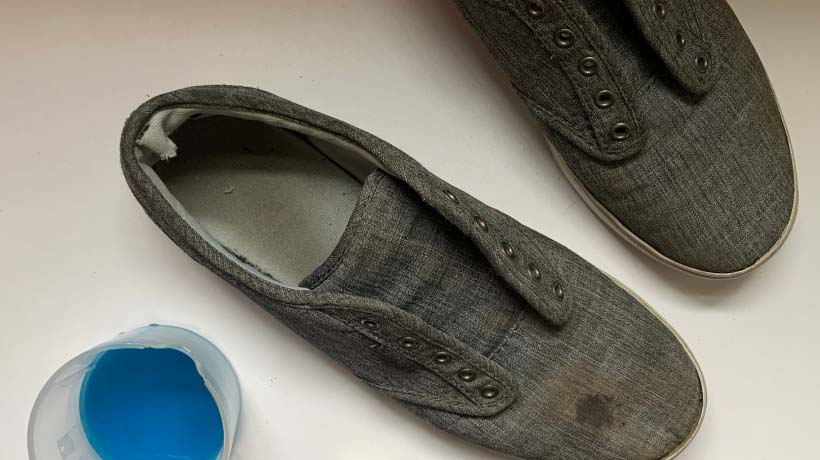
Step 6
Test a small area of your shoe to make sure there is no color transfer or spotting.
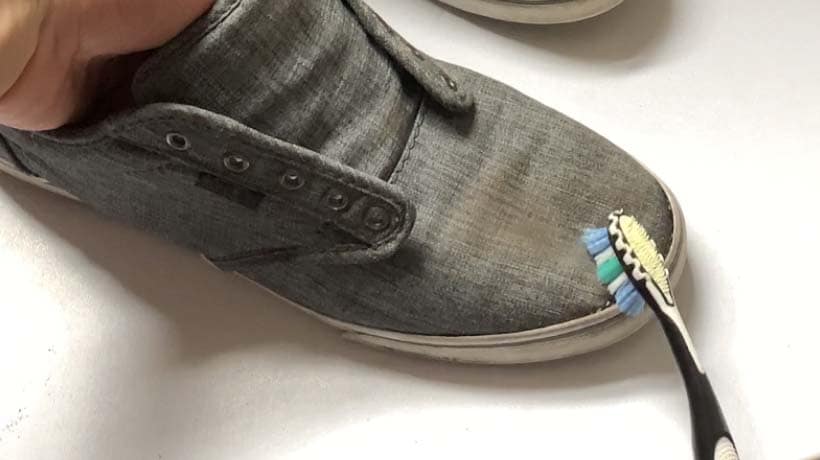
Step 7
With a clean toothbrush or a soft, clean cloth, lightly dip the brush or cloth in the soapy water and work with the grain of the fabric to lightly scrub away any dirt. Do not over-wet to prevent spotting or color transfer.
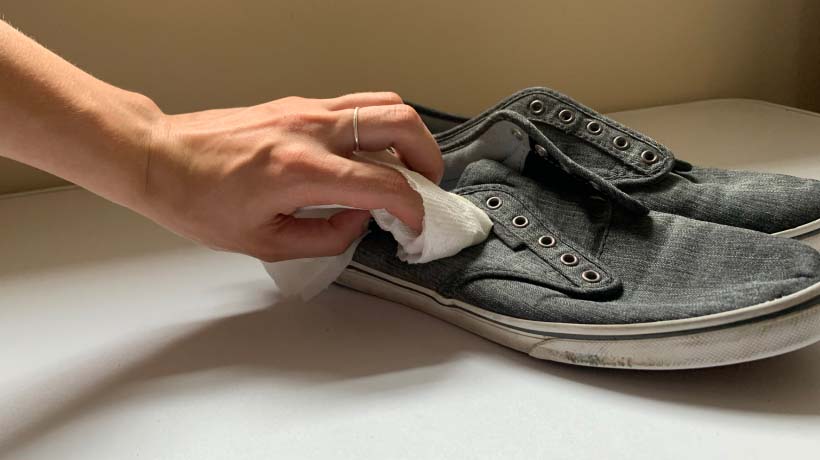
Step 8
For any leftover soapy residue, wet paper towels with clean water, and wipe away any of the excess soap. It may take several minutes and a few rounds of gently wiping to get all the soap out.
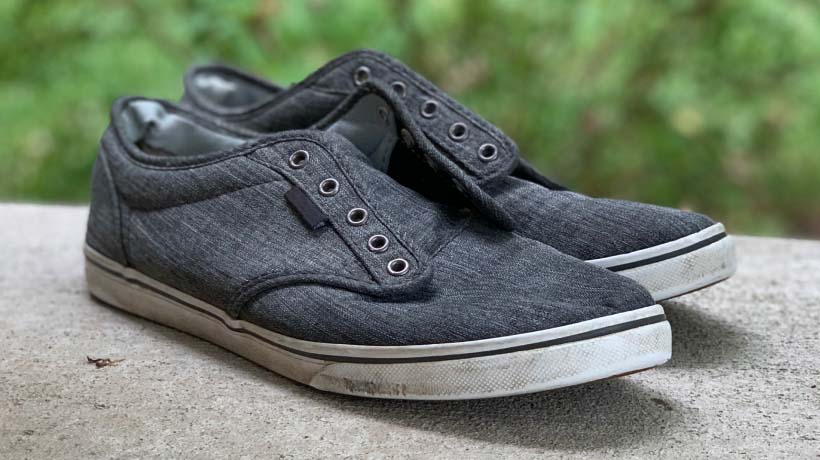
Step 9
Remove the wet rags and replace them with dry rags, and let your shoes air dry away from any direct sunlight.
How to clean shoes in the washer
Pretreat your shoes the night before with baking soda
Sprinkle your shoes inside and outside with baking soda, leaving them to rest overnight before removing the baking soda in the morning by simply shaking off any of the excess powder. This part is especially important for odor control.
Remove laces, insoles and excess dirt
Before you place sneakers in the washer, remove the insoles (if removable) and laces of your shoes. Laces can be washed in the washing machine as long as you place them in a mesh bag or pillowcase to avoid them tangling or getting stuck in the washer.
Insoles should not be placed in the washer, since they could become waterlogged. Remove any excess dirt from your shoes with a toothbrush, the same way you would if you were spot cleaning them by hand.
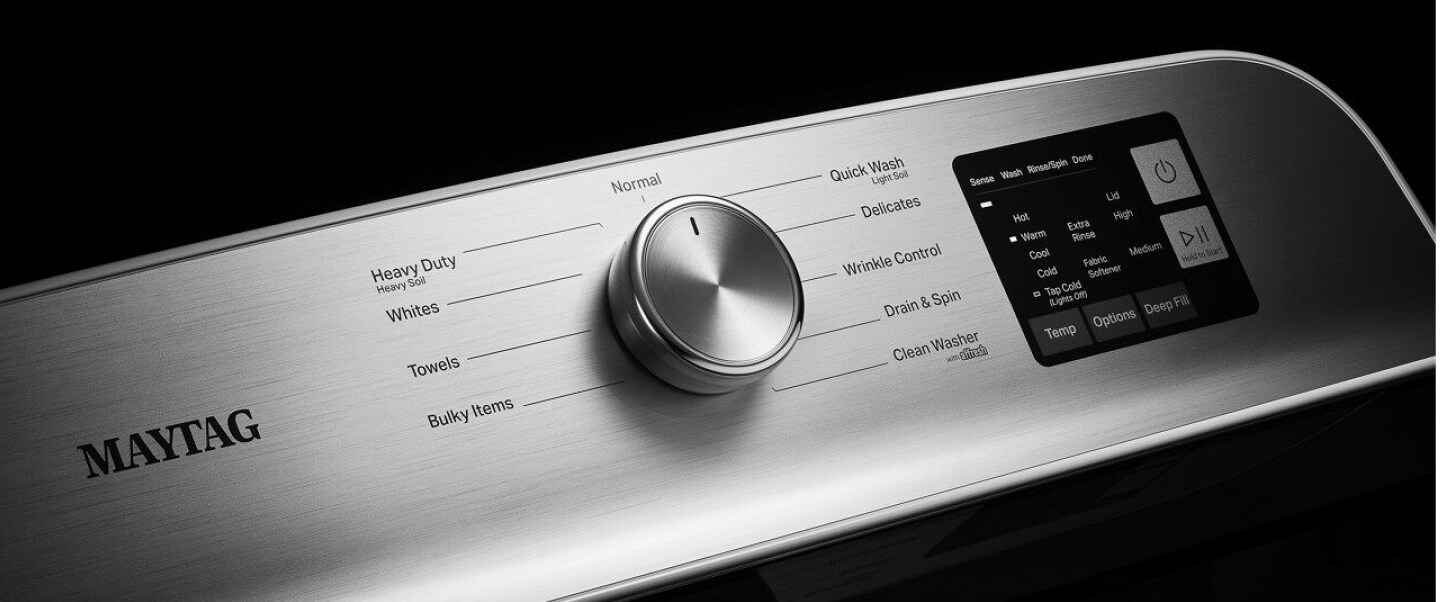

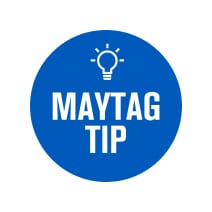
Let melamine sponges help you
Using melamine sponges on the soles of your shoes can also help remove debris and dirt without having to use as much water and soap. As an added benefit, melamine sponges can also be used on imitation leather type materials.
Choose the correct detergent, washing machine cycle and water temperature
Use a small amount of liquid laundry detergen to avoid over-sudsing. Use cold temperature water, and select the gentle cycle. If your washer has an option for low or no spinning, even better. Additionally, adding a few towels in with your shoes will prevent the shoes from clunking around the dryer.
To better understand washer cycles and how to pick the right one for your load of laundry, use this guide on washer settings explained.

Go the extra mile and use a booster
For shoes that smell less than fresh or have stains that are particularly stubborn to remove, adding a booster to your load can help with stains and odors.
Drying your shoes: Should you put your sneakers in the dryer?
Because most shoes are put together by glue that won’t withstand the high temperatures of a dryer, air drying is the safest option. Stuff your shoes with rags or balls of crumpled newspaper to help them keep their shape and keep away from direct sunlight. While it may take several hours to several days for them to fully dry, you’ll have some squeaky clean shoes at the end.
How to dry shoes in the dryer
If you’re in a hurry to dry your shoes and they’re made of canvas, cotton or polyester, then you can place them in the dryer with some precautions. If your dryer comes with a drying rack, like this one available from Maytag, you’ll want to place your shoes on the rack and use a delicate, low-heat or no-heat setting.
If your dryer doesn’t come equipped with a dryer rack, then you can wrap your shoes in a thick towel and use a short cycle with a delicate or low/no-heat setting. Check on your shoes periodically as they dry to make sure they’re not warping.
Choose a Maytag® Washer with Versatile Settings
Model: MHW8630HC
Color: Metallic Slate
Save $0 (0%)

